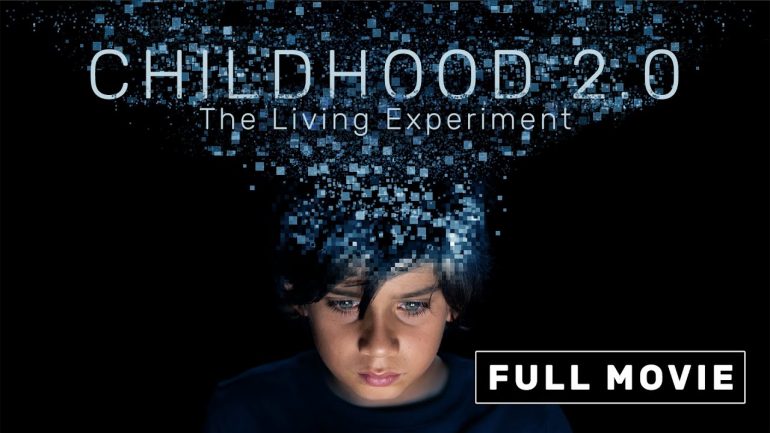Childhood 2.0 isn’t a typical tech documentary warning you of all the dangers that lurk behind social media these days (shots fired at Netflix :P). It’s more of a deep dive into the online world for those parents out there who have kids that are immersed in a virtual space that they themselves weren’t necessarily exposed to as a child. It is a world that many kids these days are traversing with ease but with the mental health of our children at an all-time low what is the true cost?
Here we take a long hard look at the lives of childhood today versus the childhood of yesteryear, taking us into the minds of teenagers who seem to spend every waking minute online. Especially now with Covid-19 forcing us to stay at home and to communicate online the release of Childhood 2.0 seems more fitting than ever.
We all know social media can be a relentless assault on a child but it can also be a way to receive a subtle shun. Parents may not notice when their child’s name hasn’t been tagged in a group photo that features them, but your child will for sure notice. Or how about the pictures of birthday parties or last-minute social gatherings that they were not invited to but show up in their feed. It is even harder to hear what drives the “likes” on their photos and the nonchalant way the teens in this film acknowledge that “showing skin” gets more likes.
Childhood 2.0 is required viewing for anyone who wants to better understand the world their children are navigating as they grow up in the digital age. It’s a film that features actual parents and kids as well as industry-leading experts in child safety and development, this documentary dives into the real-life issues facing kids today — including cyberbullying, online predators, suicidal ideation, and more.
Directed by: Jamin Winans , Robert Muratore , Kiowa K. Winans





we do a little trolling
I think the key things parents can do for their kids is from the very beginning, build an open relationship with their kids so from the very first time they encounter any form of sex, they easily feel comfortable that they can talk to their parents about it. I think a halfway method between banning and allowing social media could be allowing them to have social media accounts but with agreed upon house rules with an explanation as of why you place these restrictions. I think they should be allowed to have social media to not be complete outcasts but not allowed to have a profile picture of themselves and not allowed to upload images of themselves at all (until a certain age). This way they can browse their friends pages but are less of a target for bullying and sex preditors.
By the way, the reason these kids say “like” every other word is because they have a lack of confidence in what they say. Its as if they aren’t 100% sure about what they’re saying so using the word “like” is kind of like using the word “maybe”, releasing them of consequence in case they are wrong – or worse, they’re right but others disagree with them and they’re trying to avoid confrontation. As parents we need to give our children confidence that we have their backs, that they should stand their ground when they have an opinion and that its ok if others don’t agree. As i’m typing i thinking that sending a kid to a debate class after school could be helpful – less screen time, more in person social skills and the ability to argue your point which gives you the self confidence you need to ignore bullying because you know your true worth.
Wishing you all good luck parents and future parents 🙂
Fortunately, I was not distracted by the guy who said “unfortunately”. However, I was annoyed by the amount of times the teens said “like” in almost every sentence. In any case, this documentary reaffirmed my decision in not allowing my teens to have any social media as one that is sound.
Unfortunately, the one guy unfortunately distracted me from the content, unfortunately, by saying “unfortunately” in every scene he was in, sometimes unfortunately 4 or 5 times within two minutes unfortunately.
Fortunately, I was not distracted by the guy who said “unfortunately”. However, I was annoyed by the amount of times the teens said “like” in almost every sentence. In any case, this documentary reaffirmed my decision in not allowing my teens to have any social media as one that is sound.